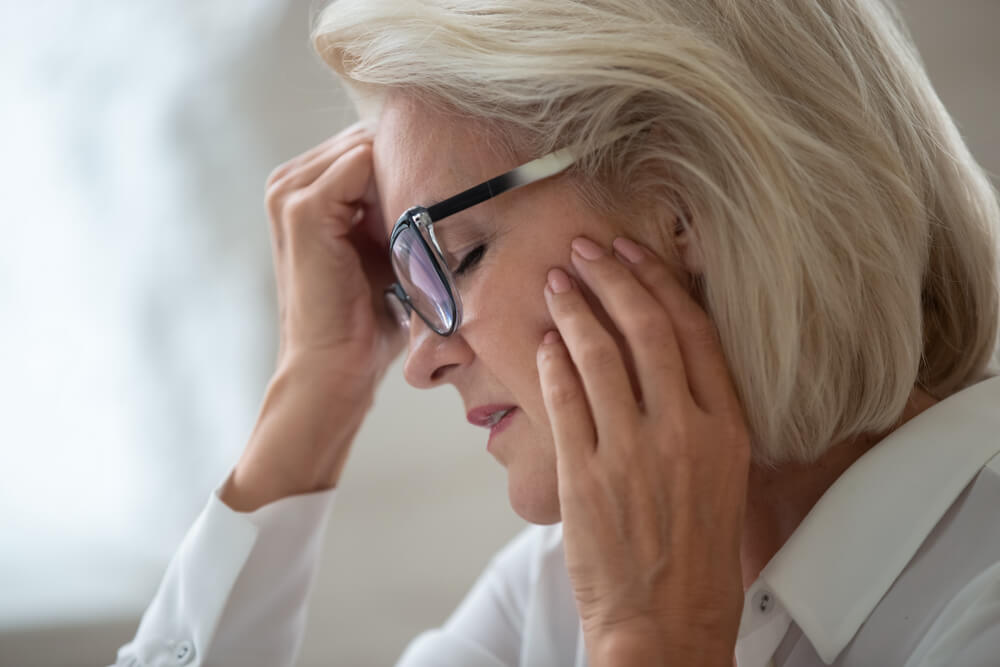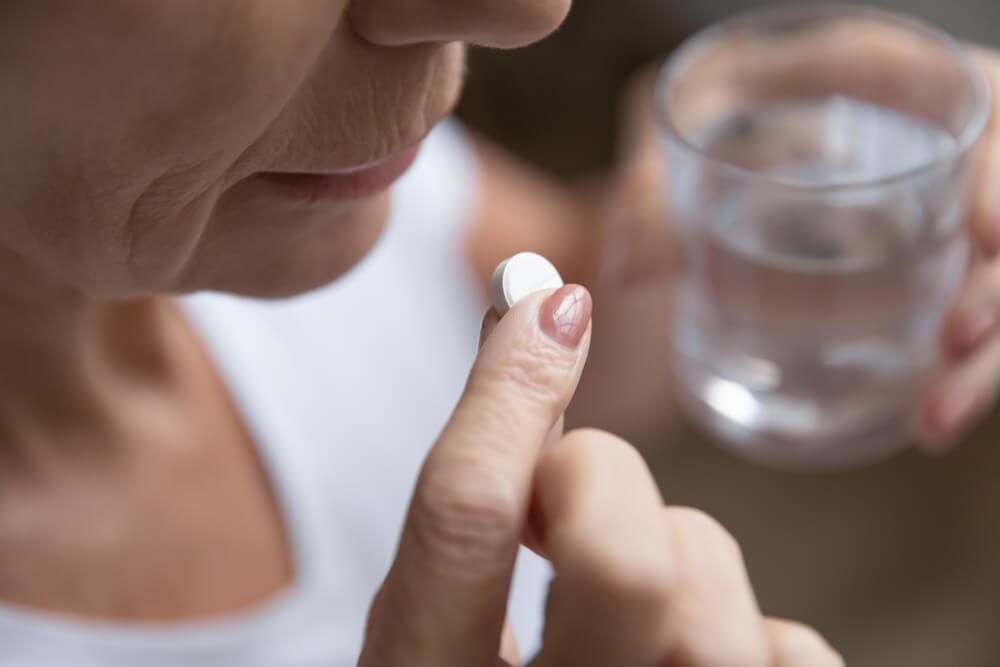What is Menopause?
Menopause is the time in a woman’s life when her menstrual cycle, or period, ends. The term itself can be applicable to the many changes women experience before their cycle stops or when the ovaries cease to release an egg every month, which signifies the end of a woman’s reproductive years. Early menopause, known as premature menopause, can be triggered by surgery or damage to the ovaries, such as chemotherapy.
How Long Does Menopause Last?
How long does menopause last, you may ask? Once menopause begins, or when you have not menstruated in a year, symptoms can continue for up to five years or longer. These symptoms start to become infrequent and less intense over time. University Park OBGYN breaks down everything you need to know about menopause step by step, including what are the 34 symptoms of menopause, what can cause hot flashes other than menopause, what is the best lubricant for vaginal dryness, can you get pregnant after menopause, and how to alleviate menopause symptoms.
What are the 34 Symptoms of Menopause?
Although menopause is a temporary period in a woman’s life, menopause symptoms can cause significant disruption, frustration, and discomfort in the lives of many women. The most common symptoms of menopause are hot flashes, which can cause sleep disturbances and vaginal dryness. Women can experience anxiety or depression due to the combination of these symptoms and others. Here are the 34 symptoms of menopause to prepare for:
- Hot flashes
- Night sweats
- Irregular periods
- Mood swings
- Breast tenderness
- Decrease in libido
- Vaginal dryness
- Headaches
- Tingling in the arms, legs, hands, and feet
- Burning in the mouth
- Changes in taste and dry mouth
- Fatigue
- Bloating
- Changes in digestion
- Joint pain or arthritis
- Muscle aches and tension
- Sensations of shock
- Itchiness
- Disrupted Sleep
- Difficulty concentrating
- Change in memory
- Hair Loss or thinning
- Weak nails
- Weight gain
- Overactive bladder/urinary incontinence
- Dizziness
- Allergies
- Osteoporosis
- Heart arrhythmia
- Body odor
- Irritability
- Depression
- Anxiety
- Panic disorder

What Can You Do to Help?
Thankfully, most women do not know what are the 34 symptoms of menopause because they do not experience all of them! However, perimenopause and menopausal symptoms can be very disruptive to a woman’s life. If you are worried about how long does menopause last for you, rest assured that there are ways to reduce the discomfort and longevity of these symptoms. Here are some treatments that may help:
- Vaginal estrogen, which can be the best lubricant for menopause dryness, as it can improve natural lubrication.
- Hormone replacement therapy replaces hormones that are affected by menopause, such as estrogen.
- Antidepressants can be utilized to reduce and control symptoms that are mood-related, and hot flashes.
- Learning and practicing techniques of meditation and mindfulness, like breathing exercises and yoga, can help to reduce stress and increase positive mood.
- Psychotherapy can provide a safe space for women to discuss and work through the discomfort and difficulties of menopause symptoms.
- Lifestyle changes such as regular exercise, a nutritious diet, consistent personal hygiene, and stopping habits such as smoking can also help reduce perimenopause and menopause symptoms.
- If you experience hot flashes, it is helpful to dress in natural fibers and layers so you may cool down more easily when one occurs.
- Avoiding spicy foods, caffeine, and alcohol, which exacerbate menopause symptoms can also help.
Can You Get Pregnant After Menopause?
Many women wonder, can you get pregnant after menopause? A woman cannot become pregnant after menopause naturally, as women do not produce eggs after menopause. On the bright side, women no longer have to rush against the biological clock because pregnancy is still possible thanks to the use of donor eggs, which can be implanted into the uterus. With a donor egg, you can get pregnant after menopause.
What Happens to Fibroids After Menopause?
Some women worry about their fibroids after menopause, wondering how it will affect them. Menopause causes a woman to produce less progesterone and estrogen, but those very same hormones are what increase your risk for fibroids. Because of this, your risk for new fibroids after menopause decreases because they do not have enough hormones available to them to know. In some cases, fibroids after menopause can shrink or disappear completely because there are not enough hormones to stay the same size.
What Causes Hot Flashes Other Than Menopause?
What can cause hot flashes other than menopause, you may ask? With a simple blood test performed by your doctor, you can determine whether your hot flashes are menopause-related or are caused by other factors. Because menopause normally starts in your 50’s, hot flashes in younger women can be caused by other medical conditions. Here are some things that can cause hot flashes other than menopause:
- Hypothyroidism
- Thyroid Cancer
- Spicy foods, alcohol, and caffeine
- Medications
- Stress
- Tumors
- Tuberculosis
- HIV

What is the Best Lubricant for Menopause Dryness?
Due to the fluctuation in hormones during this time, vaginal dryness is a common symptom of menopause. You may be wondering, what is the best lubricant for menopause dryness? To keep vaginal issues healthy after menopause, regular vaginal stimulation and sexual activity, whether alone or with a partner, is recommended. Here are some other best lubricants for menopause dryness:
- Vaginal moisturizers can be applied every few days to curb vaginal dryness.
- Vaginal lubricants can be applied during intercourse or sexual stimulation.
- Low-dose vaginal estrogen creams, tablets, or rings, can help to reinvigorate vaginal tissues.
- Selective estrogen receptor modulator (SERM) oral medications, such as Ospemifene (Osphena), can be administered to treat painful intercourse associated with vaginal atrophy.
- Nightly, vaginal suppositories like Dehydroepiandrosterone (DHEA) can also be used to help ease painful intercourse in menopausal women.
Overview
And remember, how long does menopause last is different for every woman, but symptoms typically last for four to five years on average, decreasing in intensity and frequency. The most common symptom of menopause women experience is hot flashes. If you experience any unexplained or new symptoms during perimenopause or menopause, speak with your doctor. Symptoms associated with menopause may also be symptoms of other health conditions, so it is safest to be evaluated and receive the advice of a physician. Additionally, if you feel that your symptoms are causing significant stress, distress, or disrupting your life, leading to changes in mood and focus, talk to your doctor because treatments that may help are available.
University Park OBGYN
At University Park OBGYN, our team of highly skilled and trained women’s health physicians is here to help you through all of your major life changes as a woman, from your first period to your childbirth and even through menopause. Menopause can be a difficult time in a woman’s life, but know that you are not alone. Visit our website and make an appointment with our office today to start the care you deserve and begin managing your menopause symptoms.


